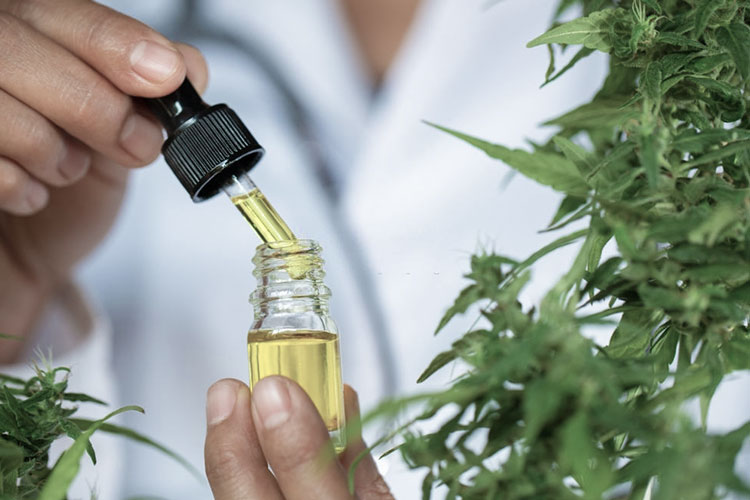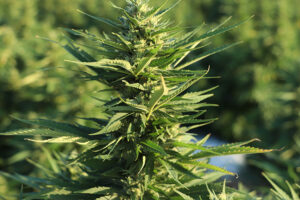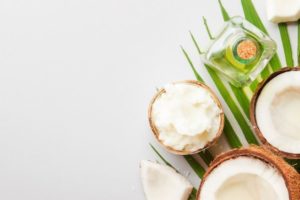Irritable Bowel Syndrome (IBS) is a common gastrointestinal disorder having limited treatment options that work. Although it isn’t a life-threatening condition, managing symptoms can be challenging.
The exact cause of IBS is still unknown, and lack of effective treatment can disrupt one’s quality of life. Research has shown that cannabinoids like CBD may help manage symptoms and improve gut health.
In this article, you will learn about how IBS patients can benefit from CBD, what products work best, how much CBD you should take, and much more!
Let’s dive right in!
What is CBD Oil Anyways?
It doesn’t matter whether you are taking CBD Oil for IBS or any other chronic condition. Having a clear idea of what hemp-derived cannabinoids are is essential. This information will help you make better decisions when buying any CBD products.
Cannabidiol or CBD is one of the primary cannabinoids found in the Cannabis Sativa plant, which has two different strains – hemp and marijuana. Marijuana contains high concentrations of the psychoactive cannabinoid THC. So, most companies get their CBD from hemp since it has little THC (less than 0.3%).
A lack of THC means that you will not get high from consuming CBD oil. Instead, you will experience its much-needed therapeutic effects, which occur due to CBD’s interaction with our endocannabinoid system (ECS). The ECS regulates several bodily functions including, mood, sleep, digestion, immune response, etc.
What Are The Benefits Of CBD Oil For IBS?
Making considerable diet changes and doing stress-relieving activities can help most people manage IBS symptoms. Some people may experience flare-ups or adverse reactions when the interaction between the brain, gut, and nervous system gets disturbed.
Your doctor may prescribe you over-the-counter medication during these flare-ups. But, they only target specific symptoms and can have harmful side-effects too. Therefore, you may want to try something natural, something like CBD.
You have cannabinoid receptors scattered around your body, even in your stomach lining. So, taking CBD may help relieve digestive symptoms since it can interact with these receptors, improving communication between cells and maintaining homeostasis.
IBS symptoms can worsen if you experience stress and anxiety regularly. CBD is known for its stress-relieving properties, and frequent use can make you feel more relaxed.
Here are a few ways CBD helps with IBS:
- May reduce inflammation of the stomach lining
- Prevents hyperactivity of the digestive muscles and stomach cramping
- Reduces anxiety, stress, and visceral pain
- Helps with anandamide deficiency – known as the bliss molecule, phytocannabinoids like CBD can increase anandamide signaling to enhance mood and appetite
- Activation of cannabinoid receptors can reduce gut motility, decrease hypersensitivity, and limit the secretion of acid
Is There Any Research On The Effects Of CBD Oil for IBS?
Although there are limited human studies concerning the effects of CBD for IBS, some animal studies suggest that the endocannabinoid system plays a role in regulating gut function, which affects IBS symptoms.
A small study analyzed the effects of CBD and PEA on gut health. It showed that a combination of these compounds reduced intestinal inflammation and leaky gut.
Another extensive observational study suggested that CBD reduced gut pain.
Some rodent studies observed that CBD reduced gut tension and contractions. Another study showed that it stabilizes gut motility and positively influences nerve channels that control secretion.
While this research shows the positive effects of CBD on your digestive system and gut health, they are not enough to prove that it can be an alternative to medication prescribed by your doctor.
How Much CBD Oil Should I Take For IBS?
There is no established dosage of CBD for IBS since everyone reacts to hemp-based cannabinoid remedies differently. Some people might need larger doses, while others can feel the same effects in much smaller ones.
CBD affects the way drug metabolism occurs in your liver. So, consulting a medical professional when taking CBD with over-the-counter IBS medications is highly recommended.
Nevertheless, we recommend starting with a low dose and slowly increasing it until getting the desired effects. Some people like to split doses. You can also take it in one go. Try experimenting with different things and stick to the one that suits you the most.
Although it is not possible to overdose on CBD, large doses can have unpleasant side effects. Therefore, you should not take more than 100mg of CBD per day. Try this easy-to-use CBD dosage calculator, which generates data based on your body weight and the condition you have.
Which CBD Products Should I Use For IBS?
You can find tons of CBD products out there, including tinctures, gummies, capsules, topicals, salves, etc. Each product contains different concentrations of CBD and can be used to treat a wide variety of ailments. You should use a full-spectrum extract to get the maximum benefit.
For people with IBS, we recommend using the following products:
CBD Tinctures
Tinctures are the most widely used CBD products out there. They are either alcohol-based extracts or contain a carrier such as MCT or olive oil. Most CBD tinctures come in small 30ml bottles with a dropper for accurate dosage. You can take it sublingually or add a few drops into your food.
CBD Capsules
CBD capsules are very similar to COD liver oil capsules. The only difference is that they contain CBD oil (obviously!). Each capsule contains a certain amount of CBD extract. So, you can easily add it to your daily routine without having to worry about calculating dosage or anything. Also, since the capsule is going directly into your stomach, you will feel these effects more vividly.
CBD Suppositories
If you are unfamiliar, suppositories are small round or cone-shaped medications that you insert into your rectal or vaginal cavity. CBD suppositories are perfect for addressing IBS symptoms since they provide instant relief in your lower gut. You don’t have to worry about the CBD getting digested into your stomach and then reaching the area of concern.
What is Irritable Bowel Syndrome?
Irritable Bowel Syndrome is a chronic functional disorder that affects your small and large intestine. Medical experts classify it as a syndrome. Why? Because it is a set of all these different digestive symptoms that have no exact cause. It may trigger episodes of abnormal bowel movements and gastrointestinal distress.
There is no cure for the disease, but reducing symptoms and making healthy lifestyle changes can help control it. IBS can go unnoticed, and a recent survey suggests that most people take 6.6 years to get it diagnosed after symptoms show.
Symptoms of IBS
- Abdominal cramps and pain
- Changes in bowel movements
- Constipation
- Diarrhea
- Bloating
- Increase flatulence
What Causes Irritable Bowel Syndrome?
As we have mentioned before, the exact cause of IBS remains unknown. But, there are a few things that may trigger or worsen symptoms.
Inflammation Of The Intestinal Lining
Most IBS patients do not show visible signs of inflammation that are detectable through examination or blood tests. However, research has shown that low-inflammation of the intestinal lining is consistent with IBS.
Diet
Your diet choices can have a significant impact on whether you develop IBS symptoms or not. If you consume a diet with high sugar content and processed foods, you are more susceptible to the condition. Processed foods are bad for your health since they lack fiber and nutritional value.
Foods with low nutritional value have a hard time moving through the gut, where bacteria can cause them to ferment. While gut bacteria is there to aid digestion, fermentation of slow-moving foods can harm your gastrointestinal-tract, causing changes in bowel movements, bloating, and pain.
Severe Bacterial or Viral Infection
Bacterial and Viral infections of the gut can take a toll on your body, having long-term consequences. You may think you have recovered from them, but the gastrointestinal lining may never full-heal for some.
Bacteria and viruses spread fast by hijacking our cells, feeding off their nutrients, and disturbing bodily functions. If they multiply quickly, viruses can seriously damage the infected organ, leading to chronic conditions like IBS.
Mental Illnesses
Your brain and gut have a close connection. Changes in one of these organs can impact the other. People struggling with anxiety and stress know how it affects their digestive system.
Early life stress and mental illnesses increase the risk factor of developing IBS symptoms.
Types Of IBS and How CBD Helps With Each
Here, we will be looking at different types of IBS and how CBD can help with each.
IBS-D (Diarrhea-dominant)
Hyperactivity of the gut muscles and high-sodium diets can cause fluid accumulation in your digestive tract. This can lead to excessive diarrhea or IBS-D symptoms since food moves more quickly through your digestive system without actually breaking down. Undigested food gets fermented in your large intestine, leading to severe symptoms such as nausea and bloating.
CBD reduces hyperactivity of the gut muscles and promotes healthy digestion. Combining it with a low-sodium diet can help you get maximum benefits for IBS-D symptoms.
IBS-C (Constipation-dominant)
As you can see, this type of IBS is consistent with constipation. A healthy gastrointestinal tract contains bile, pancreatic enzymes, and stomach acid in optimal levels to aid digestion and muscle activity.
Problems with gut-muscle activity and low concentrations of digestive juices can prevent food from moving smoothly through your digestive system, causing constipation.
Chronic constipation can be frustrating. You may lose your appetite, feel nausea and fatigue. Making diet changes can relieve constipation in the long run.
Moreover, CBD can help with IBS-C symptoms by increasing anandamide levels in your body. Anandamide reduces inflammation, slows bowel movements, and regulates the number of gut microbes.
IBS-A/M (Alternating or Mixed)
IBS-A patients experience alternating symptoms. Sometimes they get episodes of severe diarrhea, while other times, they might experience constipation. Pinpointing a single cause for these issues is difficult since abnormal bowel movements can occur due to many factors, including diet, condition of your immune system, and nervous system.
Cannabinoid remedies help maintain homeostasis in your body without targeting a specific condition. So, CBD may help relieve IBS-A symptoms since it does not cause any distinct changes but promotes balance through the endocannabinoid system.
Current Treatment Options + The Best Way To Address IBS Symptoms with CBD!
Since there is no cure for IBS, your doctor may prescribe you medications and dietary changes. These include:
- Avoiding trigger foods such as carbonated and alcoholic drinks, gluten-rich meals, fast-food, etc.
- Fiber supplements and laxatives to prevent constipation
- Anti-diarrheal, anticholinergic, tricyclic antidepressants, and pain medications for diarrhea, bloating stress triggers, and visceral pain
- IBS-specific drugs such as Rifaximin, Lubiprostone, Linaclotide, Eluxadoline, and Alosetron
You must know that CBD is a versatile treatment option that can address many health issues without targeting a specific symptom. We always recommend incorporating CBD with healthy diet changes and regular exercise to get the most out of your experience.
CBD serves as a tool for managing symptoms of IBS and promoting a balance of bodily functions. It is not a cure for IBS or any other chronic condition for that matter.
You should always consult a medical professional before opting for hemp-derived supplements to treat medical conditions.
Final Thoughts – CBD Oil for IBS
Having IBS can be frustrating, especially when you can’t understand the cause behind it. Several factors contribute to symptoms, including eating habits, lifestyle choices, brain and gut health.
CBD can help address symptoms and increase the quality of life for IBS patients, mainly because of its therapeutic value. Use CBD oil tinctures, capsules, and suppository for managing the condition since they are the most suitable.
While CBD offers a wide range of health benefits for IBS, making proper dietary and lifestyle changes is just as essential to get the most out of your experience.
To wrap it up, if you want to buy the best CBD oil products for IBS, check out our shop for premium CBD brands.
FAQs about CBD Oil for IBS
Question: Does CBD oil help with IBS?
Answer: Although IBS has no cure, CBD can help reduce symptoms by relieving inflammation, normalizing gut motility, and aiding digestion.
Question: Which CBD oil is best for IBS and anxiety?
Answer: We recommend using a full-spectrum extract since it contains a mixture of natural plant compounds, such as cannabinoids, terpenes, flavonoids, etc., for maximum benefit.
Question: Is CBD oil good for stomach inflammation?
Answer: Yes, CBD oil has natural anti-inflammatory properties and can help with stomach digestion if used in suitable amounts.
Question: How much CBD oil should I take for IBS?
Answer: A recommended dose is 50mg of CBD per day. However, if you are just starting, take a low dose and increase it every day until you find the right one.









